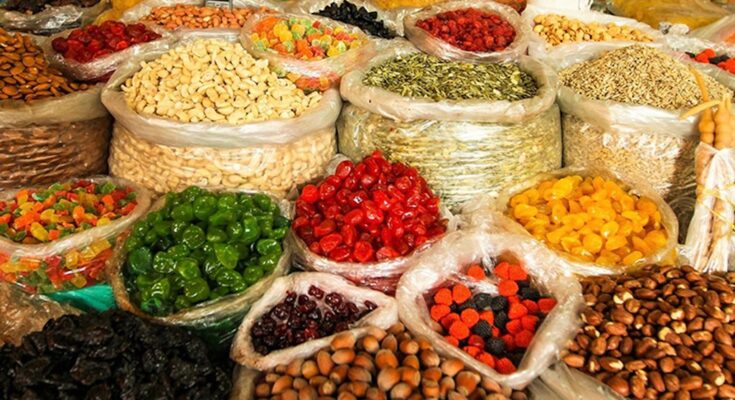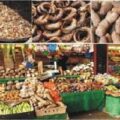By Joseph Aderonke
“Can you believe garri is now N4,000? And a derica of beans cost me N2,100 yesterday! It’s all because of this dollar.”
Just two Nigerian women having a distressed discussion about the skyrocketing prices of food items in the market. This sparked the critical question – how exactly does the increasing dollar rate drive up the cost of basic food staples?
The rapid devaluation of the naira against the dollar has led to inflation for imported food, a major factor behind Nigeria’s food crisis. In this article, we explore the connection between exchange rates and the cost of food.
We share perspectives from Nigerians across socioeconomic groups – students, traders, workers – on how this trend has slashed their purchasing power and driven up living costs. From cutting out meat to skipping meals, people are struggling to put food on the table.
Should the Dollar Impact Local Food Prices?
First, the belief that the dollar shouldn’t be affecting local prices is understandable, but the reality is that it does have a significant impact, especially in a country like Nigeria. The exchange rate between the dollar and the local currency directly influences the prices of imported goods, including essential items like food. When the dollar strengthens against the local currency, the cost of imported goods automatically increases. This, in turn, leads to rising food prices, making it more challenging for individuals and families to maintain their standard of living, which in turn allows them to increase the price of things they create locally to survive.
Secondly, the impact of the dollar’s fluctuations extends beyond directly imported goods to the cost of production for locally made goods. Many local industries rely on imported raw materials, machinery, and equipment for their production processes. When the dollar strengthens against the local currency, the cost of importing these essential components rises significantly. As a result, the cost of production for local goods increases, as businesses have to allocate more funds to acquire the necessary inputs.
Nigerians are Feeling the Pinch
Rejoice, a student at the University of Lagos explained that the prices of even books keep going up and she wonders why, she explained that formerly she could eat twice a day but now she only eats when she comes back from class and that is all for the day.
Mr Adebanjo, a father of three recently had to withdraw his children from private schools to public schools, where he doesn’t have to pay anything, because of the increase of the fees. He said during an interview with Ikejabird, “It’s a constant struggle. I have to be strategic about what I buy, going for cheaper alternatives, if there are any. It’s challenging to provide a good standard of living for my family with the way prices keep going up.”
Mrs Foluke, a trader who sells fabrics and also a family woman with 2 boys in secondary school, explained that there is no time she isn’t frustrated. When she goes to the market to restock her shop, the prices of the things she bought before would have gone up again, so she has to buy less, since she doesn’t have money for more. She said it’s like prices are increasing by minutes.
Mr Jibrin, a trader who sells tomatoes, pepper and onions said he does not understand the relation between tomatoes and the dollar rise. Previously they bought a basket of tomatoes at 12,000 naira now the prices are between 50,000 to 70,000 naira, and still not that good.
What Can The Government Do?
- Boosting Local Production: Investing in agriculture, improving infrastructure, and supporting farmers are crucial for reducing reliance on imports and stabilizing food prices.
- Exchange Rate Management: Implementing policies to stabilize the Naira’s value against the dollar can help mitigate price fluctuations. For example intervening in the foreign exchange market, managing foreign reserves, coordinating fiscal policies, promoting export diversification, and implementing structural reforms.
- Transparency and Communication: The government needs clear communication and transparency regarding economic policies and their impact on food prices.








